Envisioning the Future with CCF Advocates
In 2018, CCF launched our Women Influencing Systems & History (WISH) Advocacy Training Program. Despite the progress made by the criminal justice reform movement in the last ten years, we saw that representation of impacted women was still sorely lacking. Our goal was to work with women who had felt the impacts of incarceration in their families and communities, helping them turn their lived experience into advocacy expertise.
In the two years since WISH launched, CCF has trained over 80 women. Many of them have gone on to play major leadership roles in their communities and criminal justice-related campaigns. To celebrate our women’s advocacy and highlight the work they are currently doing, we sat down for a conversation with CCF’s Community Organizer, Ivelisse Gilestra, and WISH Alumna, Darlene Jackson.
Ivelisse, who has worked with CCF since 2016, is the founder of New York City’s chapter of All of Us or None, co-chair of the grassroots group SoS (Survivors of the System), winner of the 2018 Citizens Against Recidivism award, and is a JustLeadershipUSA Leading with Conviction Fellow. Darlene, who had already been doing advocacy work when she joined WISH, has put her training to amazing use - she is now a Steering Committee member of the Beyond Rosie’s campaign, and is running for City Council for District 18 in the Bronx.
CCF: Tell me about how you first got involved in advocacy work.
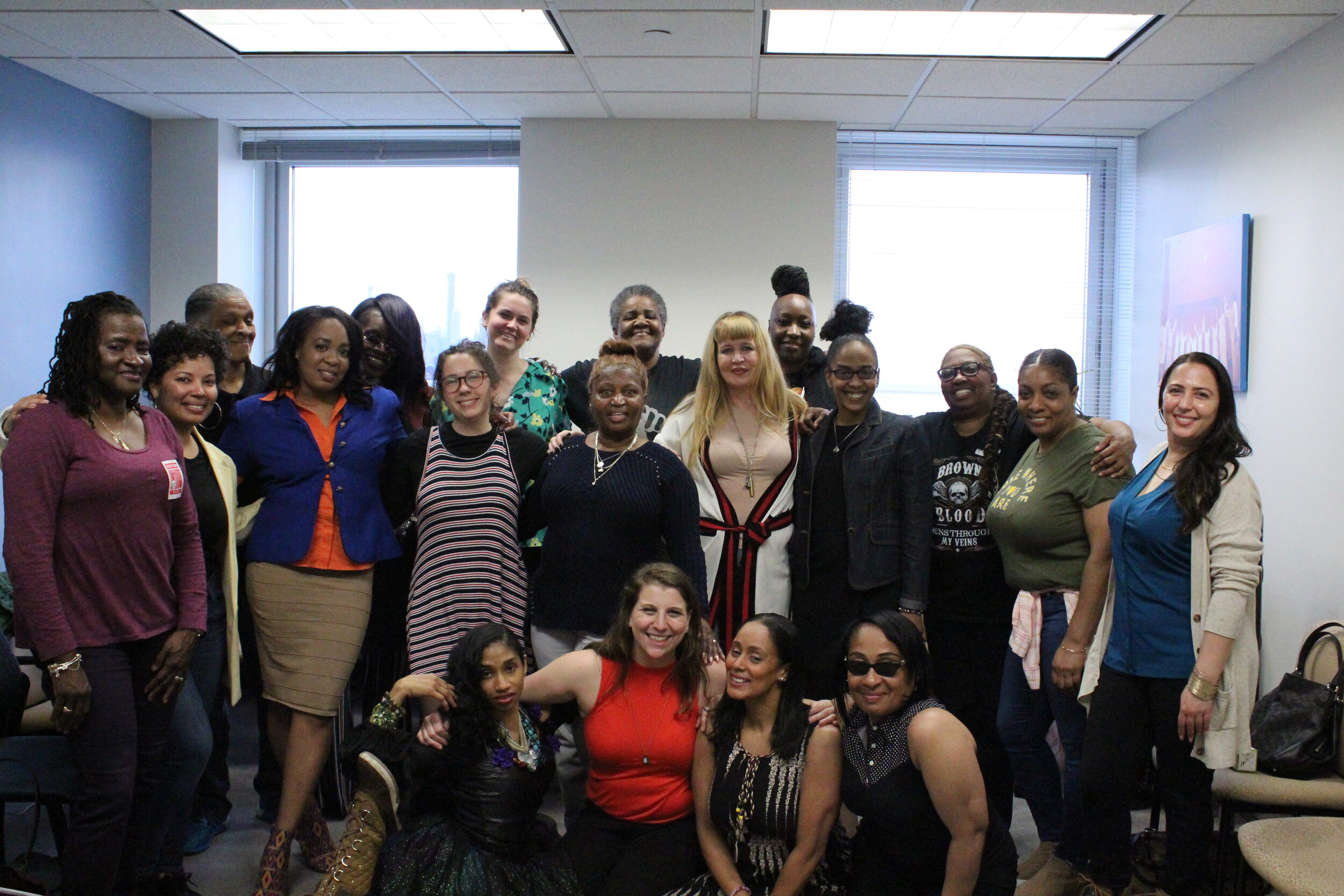
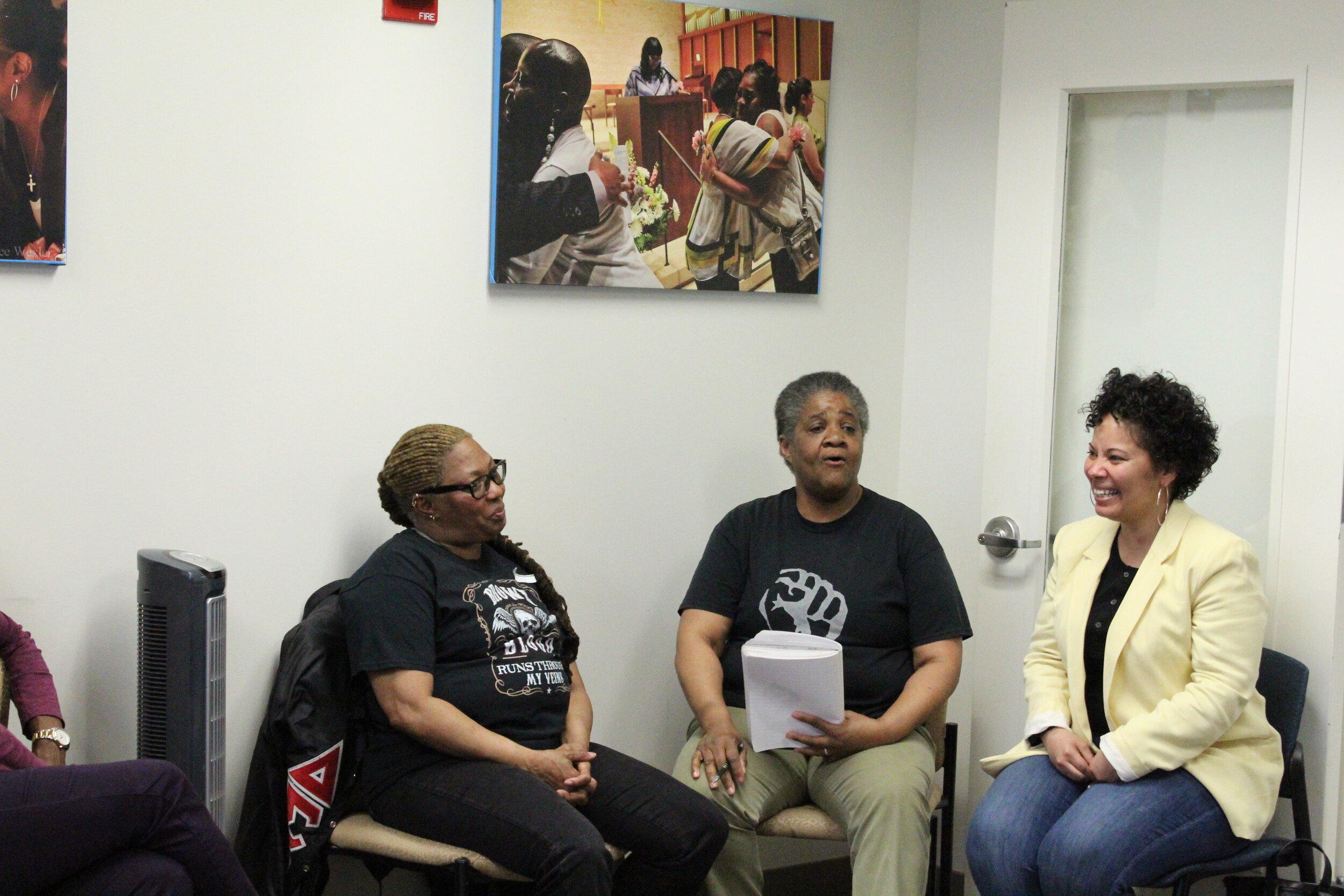
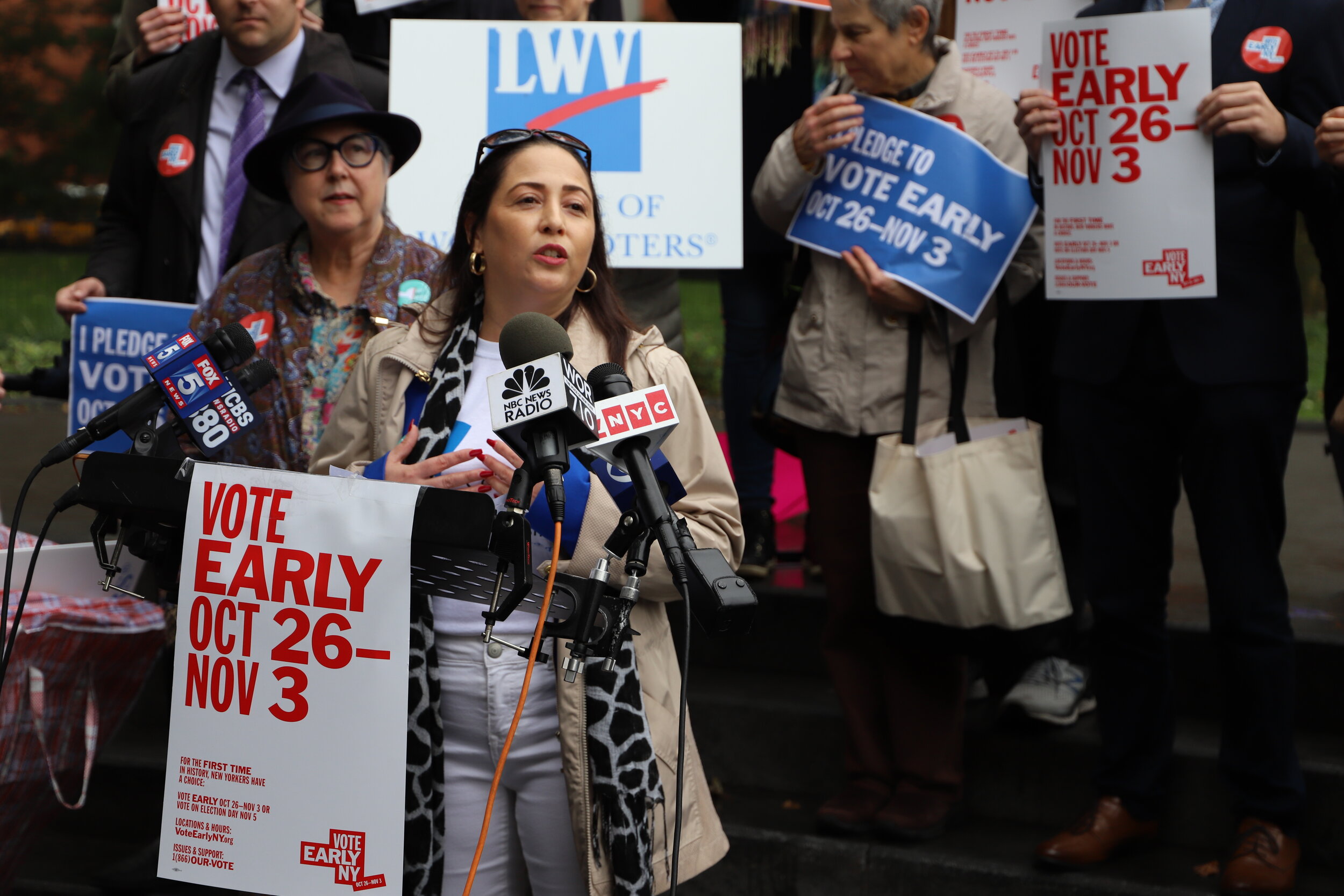
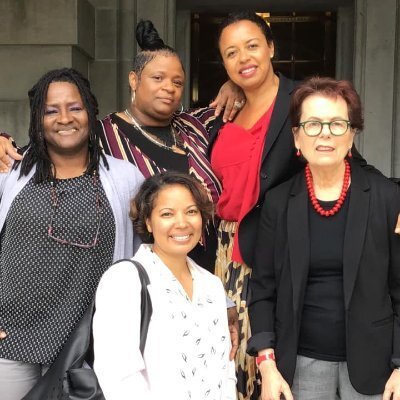
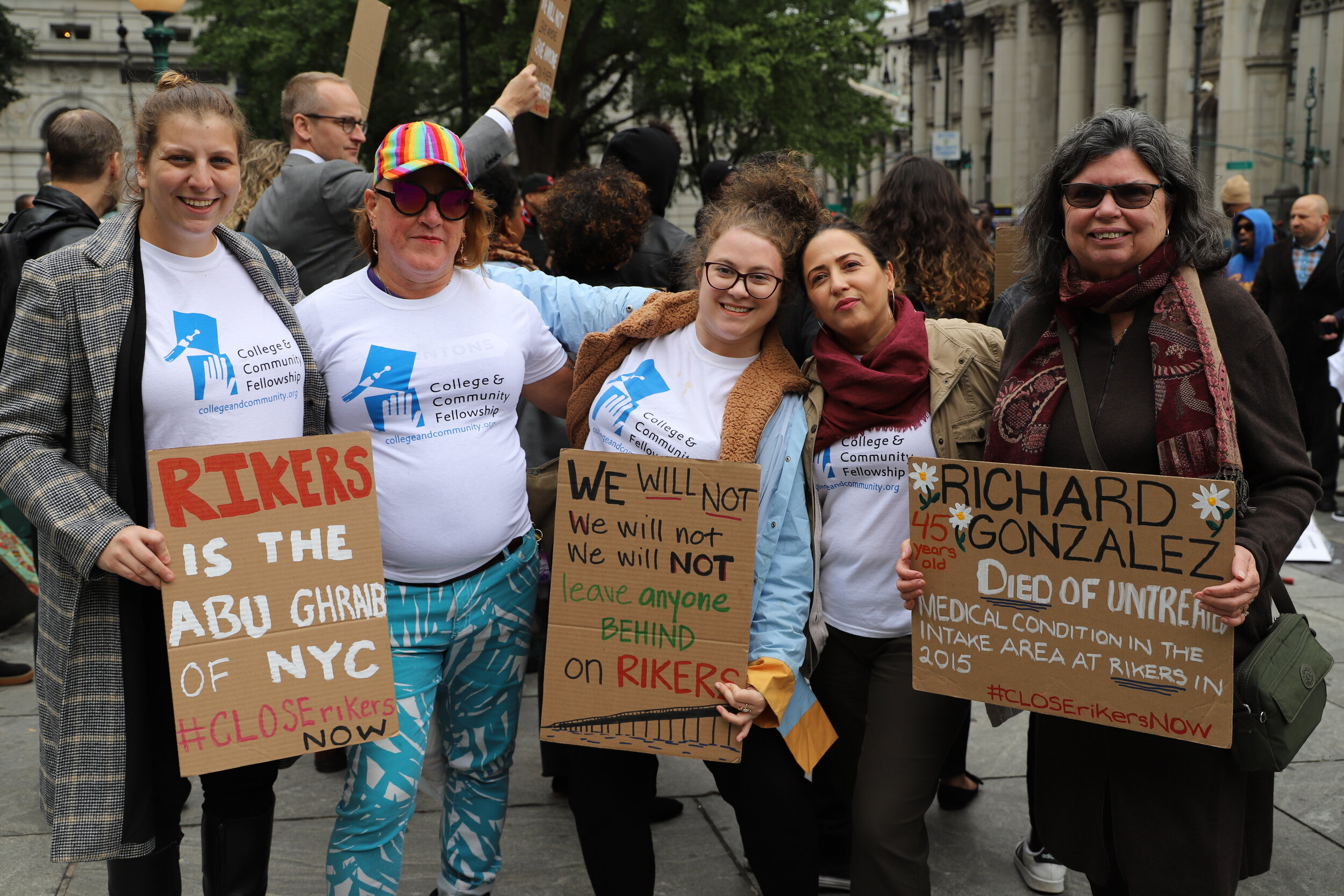
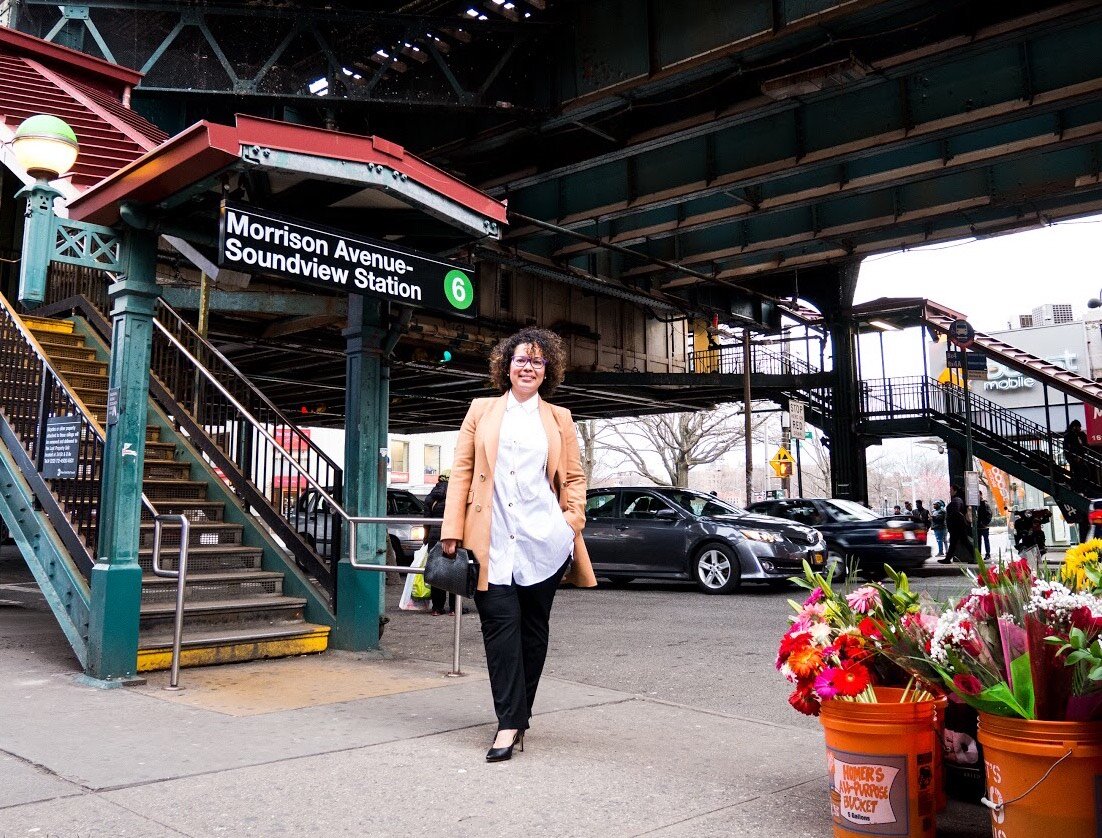
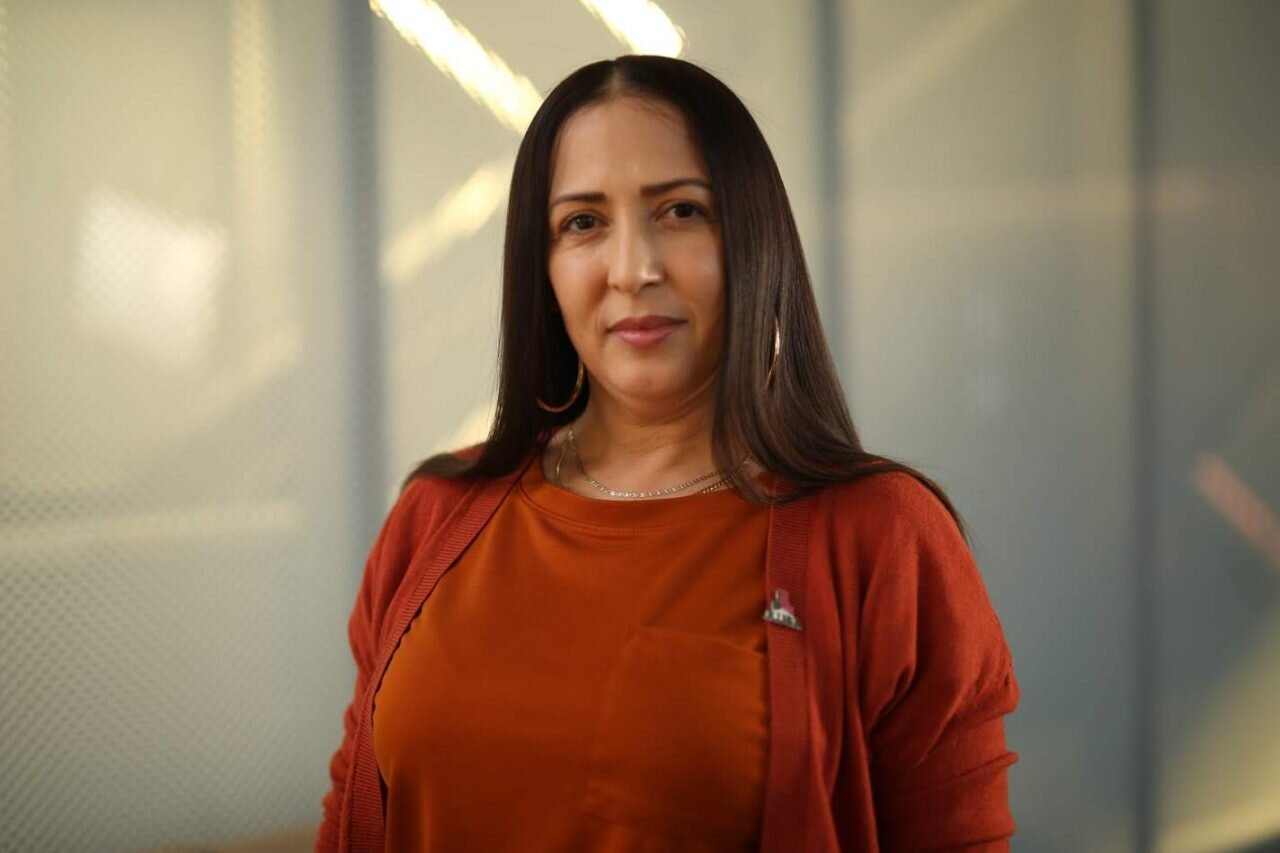
Darlene Jackson: My advocacy started when I was in the foster care system. My mom struggled with drug addiction, but instead of getting supportive services, she was criminalized. To survive, I had to ask questions and figure out a lot of bureaucratic systems myself. In the beginning, the way I showed up in advocacy spaces didn’t always land well with people, especially people without lived experience. I had to learn how to craft my message so that it landed with people in a way that didn’t allow them to deny injustices or inequities. I learned how to do that the hard way.
I had been working for the same child welfare agency that I’d been part of as a foster child. I had gotten a lot of promotions but eventually couldn’t move further without more education. That’s when I went back to school—I had been doing social work for ten years, but after one politics course, I realized my fight needed to be somewhere bigger. At that point, I was also fighting to get my son a quality education. The school system in Long Island is very segregated, so I struggled to get him into a good school. That was my introduction to school boards and community boards, which almost no one knows about even though they are a great entry point into civic engagement.
My early advocacy focused on voter registration.I was targeting the most marginalized communities—in shelter systems, NYCHA developments, city jails—people who had never voted before. One thing that continually frustrates me about advocacy work is how much time we spend chasing down our elected officials. They have us working triple-time to hold them accountable—which is necessary—but it takes away from other work that has to be happening in the community.
CCF: And it seems like a lot of elected officials are more interested in ruling their communities, rather than serving them, which really changes what communities can actually get from their electeds.
Ivelisse Gilestra: And that changes how the community is seen - whether people are placed at the center, or commodified - which distorts the message of fighting for the equity needed to change systemic, community, and individual problems. When we are looking for our solutions, we need a connective tissue between the past and present so that our solutions have compassion for the different aspects of healing that need to happen. You have to do the work internally first in order to put it out into the world, and that can take a toll.
Darlene Jackson: I’m glad Ivelisse brought up transforming the world we live in, because I don’t know when we will have a chance like this again—a chance to rebuild after something like COVID-19. At this moment, coalition building is more important than ever. All of these groups are fighting different causes, but they’re fighting the same oppressive system. This crisis has put a spotlight on so many disparities and inequities built into the fabric of the country. So you need to put people with both lived experience and professional experience into leadership positions. The real work is in the implementation process—making sure that laws you put into place actually help transform people’s lives, not keep them stagnated and in poverty. It can’t be about band-aid reforms, which got us where we are now with COVID-19 killing Latinos and Blacks at the highest rates. So we need to include community members in the planning.
The oppressive system has a lot of facets. The system that’s in place isn’t equitable, and isn’t designed for upward mobility. For example, people who receive benefits have to choose between basic necessities they need to survive. It’s almost impossible for people to live in New York City. We have so many empty luxury apartments, and a homelessness crisis. Then we spend so much money on warehousing people in shelters when it would be so much less expensive to have permanent affordable housing.
Ivelisse Gilestra: Darlene, how are you engaging your community in your advocacy work?
Darlene Jackson: Three weeks after I filed for office, COVID-19 hit. In the part of the Bronx where I’m at, there’s no precedent of leadership in terms of representation. There’s no one reassuring Bronx residents that we are going to weather this storm. A lot of what I’ve worked on is just making sure people have information—the first and only pamphlet the city sent about COVID-19 resources came in late May, way past when that information was needed. We’ve been working to educate people about how these systemic factors influence their daily lives—it's important that these conditions aren't normalized. Honestly, all the work I’m doing now wouldn’t be any different if I weren’t running for office. I want an equitable recovery.
Ivelisse Gilestra: This ties back to the transformative element of organizers. As organizers, we are daring to envision worlds that coexist, and looking ahead to three, four generations from now. I know Darlene that you have been an organizer, advocate, a true community warrior - I’ve seen you on so many platforms. I’ve been up lobbying with you in the Bronx, protesting at Rikers, and when you decided to run for City Council, I thought, “you’re exactly what we need - someone who knows the community. We need someone who really knows so that they can lead others in the City Council.”
CCF: What does the value of community look like in practice in the WISH program?
Ivelisse Gilestra: I believe that community is essential and that for women who have been impacted by the carceral system, we really need to own our transformation and healing from trauma so that we can foster the leadership of others. Building leaders around me is a core value and principle - the same way that others have supported me and helped me cultivate skills I need to also impart that same support to others. Women come to the WISH program with so much passion and insight and knowledge, so we’re just helping grow the seeds already there. The acknowledgment of trauma can be a great advisor in how we behave. At WISH, we were able to connect with a sense of community, healing, restoration, and affirmation of ourselves, while tackling the many issues that are dear to our hearts. WISH is a point of information, but not just information that we are giving to participants to memorize. It’s more about reflecting on factual information and lived experiences to figure out how to apply it in a way that will bring that knowledge and expertise to our communities.
CCF: It sounds like the healing is starting in that room, with WISH participants beginning to feel comfortable telling their stories.
Ivelisse Gilestra: Yes, it takes trust to be comfortable!
Darlene Jackson: Yes.
Ivelisse Gilestra: It takes a sense of trust to know that you’ll be heard and supported in sharing your experiences. We don’t show enough love when it comes to policy. Politics is cutthroat. To dive into changing legislation and challenging/altering it, we also need to look at how we can tackle such intense work while healing. They CAN be done simultaneously if we come from a place of honesty and have a sense of curiosity to try new things. I question my own position all the time. You have to ask “What are we fighting here? Is this going to be an incremental win? What type of goal do we have here?” And when we can do this type of critical analysis collectively, we can expand our understanding of different solutions available. And in the process, we are doing revolutionary work because we are really including each other. It’s about building the movement, but at the same time that we’re building, we’re also deconstructing our experiences, assumptions, and understanding of the world. And that takes courage.
Darlene’s cohort is doing amazing things. Darlene is running for City Council, Tia Ryans just opened Forte House in the middle of a pandemic. All of this is testimony that while we are already doing the work, we just need to polish those skills more in order to go deeper in developing their own paths.
Darlene Jackson: In the WISH program, I learned how to hold my personal story. I’m more comfortable behind the scenes and working with others to amplify their stories and experiences. But at CCF, I had to tell my own story and why I’m doing this work. Now, running for office, I see the value of being able to tell my own story. CCF gave me connections to other people doing similar work—in climate justice, transit access, etc—all of these issues that intersect and are caused by the same system of oppression.
I was really happy that I did the WISH program at the same time that I joined Beyond Rosie’s. I was able to connect my own story about why I was doing this work to the Beyond Rosie’s campaign, and it was helpful to hear the stories from my cohort, many of whom were also part of the campaign. Every story I listened to reminded me of my mom’s experience. Our system failed her. Beyond Rosie’s is more than a campaign; it’s a movement. I’ll be fighting with them to the finish line. At the end of the day, when women thrive, families and communities thrive.
CCF: What is your vision for a healthy New York City?
Darlene Jackson: We need to think about equity to the point of reparations and figure out what that looks like. Permanent affordable housing, people having a key to their own apartments, having living wages, and access to quality, affordable healthcare. We need economic development to keep dollars inside communities. People need quality education and access to mental healthcare. We need to treat violence as a public health issue. We need to make sure people have a say and have a voice; there needs to be participatory, community-based planning. We need to build wealth and health so that the next time there’s a crisis, we're better prepared to weather it.
I’m not doing this because I want a political career—I am doing this because it’s my life. I live and breathe this work.
Ivelisse Gilestra: We need to start envisioning as if our lives depended on it, because they do. My vision for a healthy NYC dissects the roots of exclusion, displacement, and mediocre wins which never reflect how oppressive systems are replicated. I’ve always envisioned alternative liberatory and democratic practices which place people and values at the center. How do we bring the work forward and not lose ourselves in the process? I would love to see in my lifetime a NY where a child’s parents don’t have to lie about their zip code to provide a better education, where marginalized populations really become engaging agents in their respective communities and shift the power where it belongs; I envision a NY where folks don’t have to pick between healthcare and rent, where I don’t have to see cardboard boxes as homeless shelters right by the extravagance of Macy’s windows display. I envision a NY which uses art as liberation, community as collective power and each one of us as alchemists to transmute this historical mess into something we all can aspire to build.
